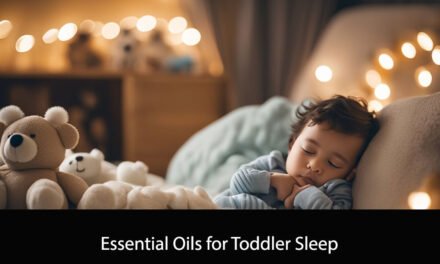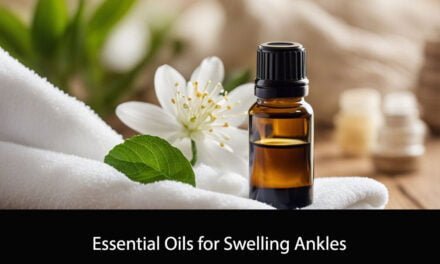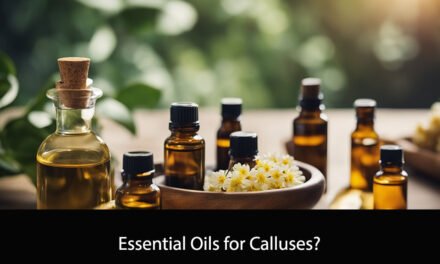Essential oils have been used for centuries to promote physical and emotional well-being. When it comes to managing anger, essential oils can be a powerful tool to help us calm down and find balance. In this article, we will explore the benefits of using essential oils for anger and how they can help us regulate our emotions.
Anger is a natural human emotion, but when it becomes uncontrollable, it can have a negative impact on our relationships, work, and overall quality of life. Essential oils can help us manage our anger by promoting relaxation, reducing stress, and improving our mood. We will discuss which essential oils are best for anger and how to use them effectively. With the right knowledge and approach, essential oils can be a valuable addition to our anger management toolkit.

Understanding Anger
Anger is a normal human emotion that we all experience from time to time. It is a natural response to certain situations that we perceive as threatening or unjust. However, when anger becomes excessive or uncontrolled, it can have negative consequences on our physical and mental health, as well as our relationships with others.
Causes of Anger
There are many different things that can trigger feelings of anger. Some common causes include:
- Frustration with a situation or person
- Feeling disrespected or unfairly treated
- Fear or anxiety
- Feeling overwhelmed or stressed
- Physical pain or discomfort
- Feeling powerless or out of control
It is important to recognize that anger is a complex emotion and it can be caused by a combination of factors. Identifying the root cause of your anger can help you to manage it more effectively.
Effects of Anger
When we experience anger, our bodies go through a series of physiological changes. These changes can have both short-term and long-term effects on our health. Some of the common effects of anger include:
- Increased heart rate and blood pressure
- Muscle tension and headaches
- Digestive problems
- Insomnia and other sleep disturbances
- Depression and anxiety
- Relationship problems
In addition to the physical and emotional effects, uncontrolled anger can also lead to impulsive behavior and poor decision-making. It is important to learn how to manage anger in a healthy way to avoid these negative consequences.
Overall, understanding the causes and effects of anger is an important first step in learning how to manage this powerful emotion. By identifying your triggers and developing healthy coping strategies, you can learn to express your anger in a constructive way and maintain positive relationships with those around you.
Essential Oils Explained
What are Essential Oils
Essential oils are highly concentrated plant extracts that are obtained through distillation or cold pressing. They contain the natural fragrance and healing properties of the plant and are used in aromatherapy to promote physical and emotional well-being.
Essential oils are made up of tiny molecules that can easily penetrate the skin and enter the bloodstream. They are then carried to different parts of the body where they can have therapeutic effects. Each essential oil has a unique chemical composition that determines its properties and benefits.
How Essential Oils Work
Essential oils work through the sense of smell and the skin. When inhaled, the molecules of the oil stimulate the olfactory system, which is connected to the limbic system in the brain. The limbic system controls emotions, memories, and the autonomic nervous system, which regulates the heart rate, blood pressure, and breathing.
When applied to the skin, essential oils can be absorbed into the bloodstream and have a systemic effect. They can also be applied topically to specific areas of the body for localized benefits.
Essential oils can be used alone or in combination with other oils to create synergistic blends. They can be diffused, applied topically, or ingested (although ingestion should only be done under the guidance of a qualified aromatherapist or healthcare provider).
It is important to note that essential oils are highly concentrated and should be used with caution. They should be diluted with a carrier oil before applying to the skin, and some oils should be avoided during pregnancy or by people with certain medical conditions. Always do your research and consult with a qualified aromatherapist or healthcare provider before using essential oils.
Top Essential Oils for Anger
Lavender
Lavender oil is known for its calming properties. It can help reduce stress and anxiety, which are often underlying causes of anger. Lavender oil can be applied topically or diffused in a room to help create a calming environment.
Ylang Ylang
Ylang Ylang oil is another essential oil that can help reduce stress and anxiety. It has a sweet, floral scent that can help promote relaxation and calmness. Ylang Ylang oil can be diffused or applied topically to help reduce feelings of anger.
Bergamot
Bergamot oil is a citrus oil that can help uplift mood and reduce stress. It has a refreshing scent that can help promote feelings of happiness and positivity. Bergamot oil can be diffused or applied topically to help reduce feelings of anger.
Chamomile
Chamomile oil is known for its calming and soothing properties. It can help reduce stress and anxiety, which can often lead to feelings of anger. Chamomile oil can be diffused or applied topically to help promote relaxation and calmness.
Frankincense
Frankincense oil is a grounding oil that can help reduce feelings of stress and anxiety. It has a warm, earthy scent that can help promote feelings of relaxation and calmness. Frankincense oil can be diffused or applied topically to help reduce feelings of anger.
Overall, these essential oils can be helpful for reducing feelings of anger and promoting relaxation and calmness. It’s important to remember that essential oils should not be used as a replacement for professional medical treatment. If you are experiencing persistent feelings of anger, it’s important to seek help from a mental health professional.
How to Use Essential Oils for Anger
When it comes to managing anger, essential oils can be a helpful tool. Here are a few ways to use essential oils for anger:
Inhalation
Inhaling essential oils can be a quick and effective way to experience their calming effects. You can add a few drops of essential oil to a diffuser or inhale directly from the bottle. Some essential oils that are known to help with anger include:
- Lavender
- Bergamot
- Ylang ylang
- Frankincense
- Chamomile
Topical Application
Topical application of essential oils can also be effective for managing anger. You can mix a few drops of essential oil with a carrier oil, such as coconut oil or jojoba oil, and apply it to your skin. Some essential oils that are good for topical use include:
- Peppermint
- Eucalyptus
- Rosemary
- Lemon
- Clary sage
Bath and Shower
Taking a bath or shower with essential oils can be a relaxing way to manage anger. You can add a few drops of essential oil to your bath water or shower gel. Some essential oils that are good for this purpose include:
- Sandalwood
- Patchouli
- Cedarwood
- Vetiver
- Orange
Remember to always dilute essential oils before applying them to your skin and to avoid using them near your eyes or mucous membranes. If you have any concerns about using essential oils, consult with a healthcare professional.

Safety Measures and Precautions
When using essential oils for anger, it’s important to take some safety measures and precautions to ensure safe and effective use. Here are some things to keep in mind:
1. Dilution
Essential oils are highly concentrated and should always be diluted before use. We recommend diluting essential oils with a carrier oil such as coconut, jojoba, or almond oil. The recommended dilution ratio is usually 2-3 drops of essential oil per teaspoon of carrier oil.
2. Skin Sensitivity
Some essential oils can cause skin irritation or allergic reactions. It’s important to do a patch test before using any essential oil topically. Apply a small amount of diluted essential oil to a small area of skin and wait 24 hours to see if there is any reaction. If you experience any redness, itching, or swelling, discontinue use immediately.
3. Inhalation
Essential oils can be inhaled for their therapeutic benefits, but it’s important to use caution. Never inhale essential oils directly from the bottle. Instead, add a few drops to a diffuser or a bowl of hot water and inhale the steam. It’s also important to use essential oils in a well-ventilated area and to avoid prolonged inhalation.
4. Pregnancy and Children
Some essential oils can be harmful to pregnant women and children. It’s important to consult with a healthcare provider before using essential oils if you are pregnant or nursing. When using essential oils on children, it’s important to use a lower dilution ratio and to avoid certain oils altogether.
By following these safety measures and precautions, you can enjoy the therapeutic benefits of essential oils for anger in a safe and effective way.
Conclusion
In conclusion, essential oils have been found to be a promising natural remedy for managing anger. While more research is needed to fully understand their effectiveness, many people have reported positive results from using essential oils for anger management.
It is important to note that essential oils should not be used as a substitute for professional medical advice or treatment. If you are struggling with anger issues, it is important to seek the help of a mental health professional.
When using essential oils, it is important to follow proper safety guidelines and dilute them properly before use. Some essential oils may also have contraindications for certain medical conditions or medications, so it is important to do your research and consult with a healthcare professional before using them.
Overall, essential oils can be a helpful addition to a comprehensive anger management plan that includes therapy, healthy coping mechanisms, and self-care practices. We encourage you to explore the use of essential oils for anger management under the guidance of a healthcare professional.

Frequently Asked Questions
What are some essential oils that can help with managing emotions?
There are several essential oils that can help with managing emotions, including lavender, chamomile, bergamot, ylang-ylang, and frankincense. These oils have calming and soothing properties that can help reduce feelings of anxiety and stress.
Can essential oils be used as a natural way to manage anger?
Yes, essential oils can be used as a natural way to manage anger. Some essential oils, such as peppermint, lemon, and eucalyptus, have invigorating and refreshing properties that can help promote feelings of calm and relaxation.
How can essential oils be incorporated into a daily routine to help with anger management?
Essential oils can be incorporated into a daily routine in several ways, such as diffusing them in a room, applying them topically, or adding them to a bath. Diffusing essential oils in a room can help create a calming and relaxing atmosphere, while applying them topically can provide a more targeted and localized effect.
What are some essential oil blends that can promote feelings of calm and relaxation?
Some essential oil blends that can promote feelings of calm and relaxation include lavender and chamomile, bergamot and ylang-ylang, and frankincense and sandalwood. These blends can be diffused in a room or applied topically to help promote relaxation and reduce feelings of stress and anxiety.
Are there any specific essential oils that can help with reducing stress levels?
Yes, there are several essential oils that can help with reducing stress levels, including lavender, bergamot, frankincense, and ylang-ylang. These oils have calming and soothing properties that can help promote relaxation and reduce feelings of stress and anxiety.
How can essential oils be used to promote a positive mood and mindset?
Essential oils can be used to promote a positive mood and mindset by diffusing them in a room or applying them topically. Some essential oils, such as peppermint and lemon, have invigorating and refreshing properties that can help promote feelings of positivity and energy. Other oils, such as lavender and frankincense, have calming and soothing properties that can help promote relaxation and reduce feelings of stress and anxiety.





